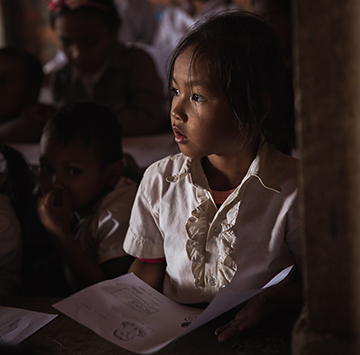The Gender Equity action strives to provide access to voluntary family planning services, for both men and women, and increased access to education for women which in turn helps manage overpopulation and resource depletion. Educated women have fewer, but healthier children and are active in maintaining their reproductive health. Women and girls that have access to voluntary family planning services have lower rates of maternal and infant deaths, lower rates of unintended pregnancies, reduction in mother-to-child transmission of HIV, and poverty reduction.
Providing education and voluntary family planning services is not a method of population control as resources are dwindling, but a vehicle for female empowerment, success and autonomy–the environmental impact of reducing population growth in the wake of the climate crisis is a positive and critical side effect.
Drawdown Impact
Closing the education gap in low- and low-middle-income countries would not only benefit the women and girls in these areas by compensating them justly, but could result in a reduction of 51.48 gigatons of green-house emissions by 2050.
Drawdown science has modeled the impact of access to voluntary family planning services in low-income and developing nations on consumption of energy, physical space, food, waste, and transportation. If the trajectory of population growth can be changed with access to these services, there would be a reduction of 102.96 gigatons of carbon dioxide while only costing $10.77 per user annually in low-income countries.
Educating girls not only leads to fewer and healthier children down the line, but empowers them to live autonomously and productively. The education of girls boosts economies, lowers rates of unintended pregnancy, and allows them to have an active role in their communities. Education opens doors to girls in low-income and developing countries, though a financial gap of $39 million that still persists in low- and low-middle-income countries. Closing this gap would not only benefit the women and girls in these areas by compensating them justly, but could result in a reduction of 51.48 gigatons of greenhouse emissions by 2050.
To learn more about the gender equity mission of Project Drawdown and the positive environmental and social impacts of their interventions, visit Project Drawdown’s pages on family planning and educating women and girls below:
Why Nurses
Nurses do more than aid illnesses and injuries–they are trusted members of communities whose dedication to health extends beyond single patient interactions. Beyond clinic care, nurses have taken on the responsibility of patient and community education. Family planning services are still a taboo subject across the world. Given that nurses are trusted as the most ethical and honest community members (according to Gallup polls over the last 18 years), they are uniquely suited to educate about voluntary family planning services in a way that makes women and girls feel safe and comfortable. They are also equipped to provide education to men and community leaders on the importance of family planning and how access to family planning helps the whole community. Additionally, the American Nurses’ Association states that knowledge of environmental health is essential to nursing practice and patient education. Nurses are ready to use their clinical and educational skills to educate their community members about environmental health and how to reduce individual environmental impacts as well as educating and empowering women and girls to take control over their reproductive health.
Key Areas for Action
Nurses around the world are invited to join the Nurses Drawdown movement
by taking personal and professional action in five key areas:
Supporting a clean energy future by promoting energy efficiency and advocating for a transition to renewable energy
Committing to eat a more plant-based diet, use clean-burning cookstoves, and reduce food waste
Supporting education for girls and access to family planning
Promoting walkable cities, including improving bike infrastructure and mass transit
Planting trees and protecting forests


